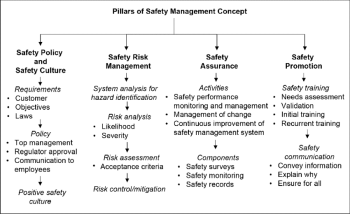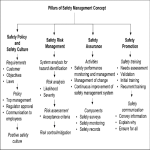The Author: Sherifudeen Olasheni Carew is the Managing Director of PureConsult Ltd, UK. & Nigeria and a member of the Executive Council of Badagry Chamber of Commerce Industry Mines and Agriculture (BACCIMA).
Work-related stress is a common problem that can have a significant impact on employee mental health. It can lead to a number of mental health conditions, including anxiety, depression, and burnout. Workplace stress can also have a negative impact on physical health, leading to problems such as high blood pressure, heart disease, and insomnia.
Stress and mental health at work is a common issue that affects many people around the world. Stress can have negative impacts on both physical and mental well-being, as well as on work performance and productivity. Therefore, it is important to understand the causes, effects, and solutions for stress and mental health at work.
Some of the causes of stress and mental health at work can include:
· Excessive workloads or work pace, understaffing, long, unsocial, or inflexible hours, or lack of control over job design or workload.
· Unsafe or poor physical working conditions, organizational culture that enables negative behaviours, violence, harassment or bullying, discrimination and exclusion, or unclear job role.
· Job insecurity, inadequate pay, under- or over-promotion, or poor investment in career development.
· Conflicting home/work demands or personal issues
There are many factors that can contribute to workplace stress, including:
· Long hours and excessive workloads
· Tight deadlines and pressure to meet unrealistic expectations
· A lack of control over one's work
· Poor communication and conflict with co-workers or managers
· A lack of support from colleagues or management
Signs and Symptoms of Workplace Stress
The signs and symptoms of workplace stress can vary from person to person, but some common ones include:
· Feeling overwhelmed or unable to cope
· Irritability and anger
· Difficulty concentrating
· Changes in sleep patterns
· Changes in appetite
· Physical symptoms such as headaches, stomach-aches, and fatigue
Impact of Workplace Stress on Mental Health
Workplace stress can have a significant impact on employee mental health. It can lead to a number of mental health conditions, including:
· Anxiety: Anxiety is a common mental health condition that is characterized by feelings of worry, nervousness, and fear.
· Depression: Depression is a serious mental health condition that is characterized by feelings of sadness, hopelessness, and loss of interest in activities once enjoyed.
· Burnout: Burnout is a state of emotional, physical, and mental exhaustion caused by prolonged or excessive stress.
Some of the solutions for stress and mental health at work can include:
· Producing, implementing, and communicating a mental health at work plan that promotes good mental health of all employees and outlines the support available for those who may need it.
· Developing mental health awareness among employees by making information, tools, and support accessible.
· Encouraging open conversations about mental health and the support available when employees are struggling, during the recruitment process and at regular intervals throughout employment and offering appropriate workplace adjustments to employees who require them.
· Providing employees with good working conditions and ensuring they have a healthy work life balance and opportunities for development.
· Promoting effective people management to ensure all employees have a regular conversation about their health and well-being with their line manager, supervisor or organizational leader and training and supporting line managers and supervisors in effective management practices.
· Designing a safe workplace, providing training and support, communicating effectively, and managing conflict.
· Seeking professional help if needed, such as from a Doctor, a counsellor, or a mental health service.
How to Manage Workplace Stress
There are a number of things that employees can do to manage workplace stress, including:
Set realistic expectations and goals.
· Talk to your manager about your workload and ask for help if you are feeling overwhelmed.
· Take breaks throughout the day to relax and de-stress.
· Get regular exercise and eat a healthy diet.
· Make time for relaxation and activities that you enjoy.
· If you are experiencing workplace stress, it is important to seek help from a qualified mental health professional.
In addition to the above, employees can also benefit from employers who:
· Create a supportive and healthy work environment
· Provide resources for preventing and managing workplace stress
· Offer flexible work arrangements
· Train managers to recognize and address signs of workplace stress.
Source: People Images/E+, via Getty Images. The New York Times Company.







